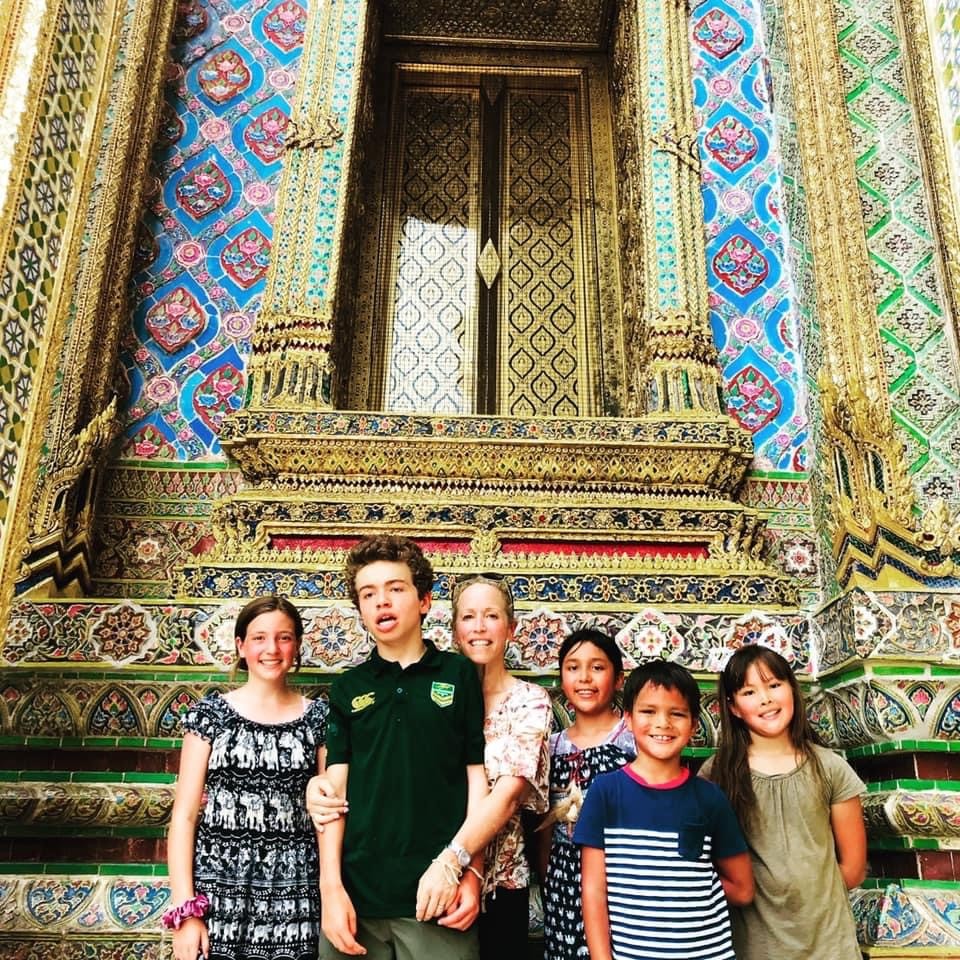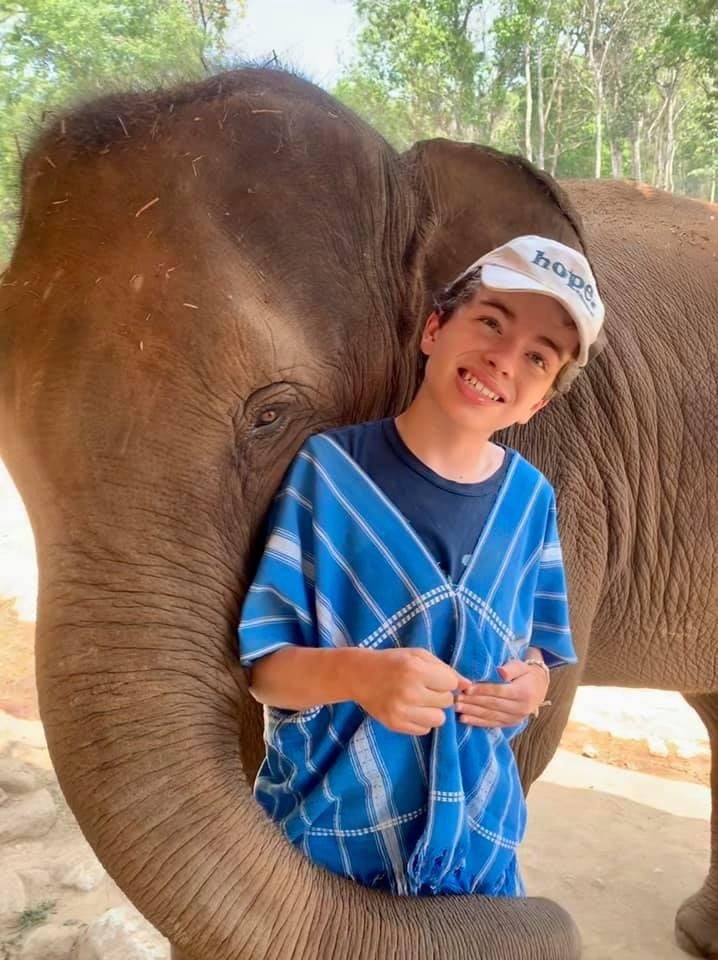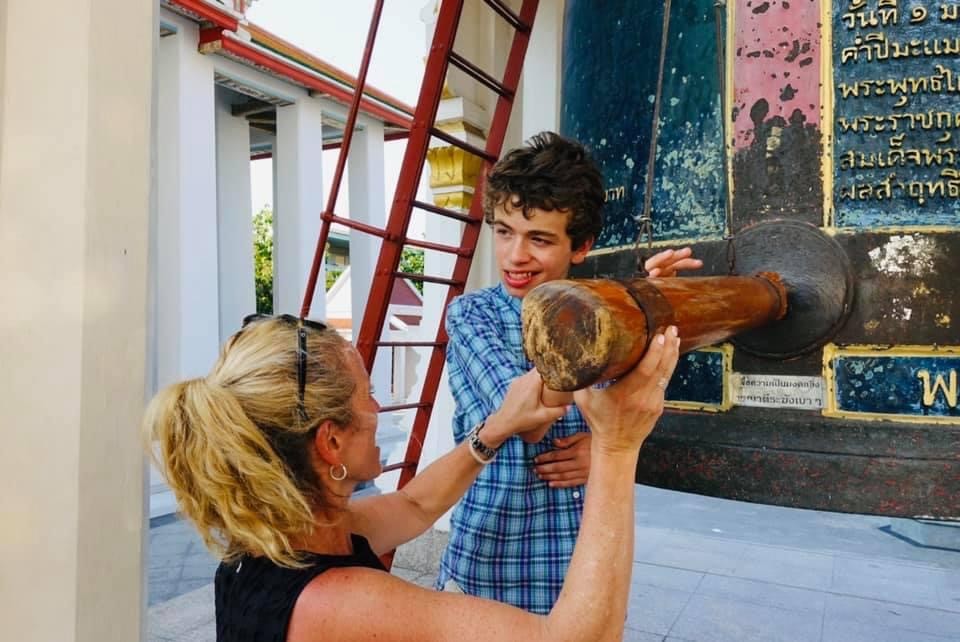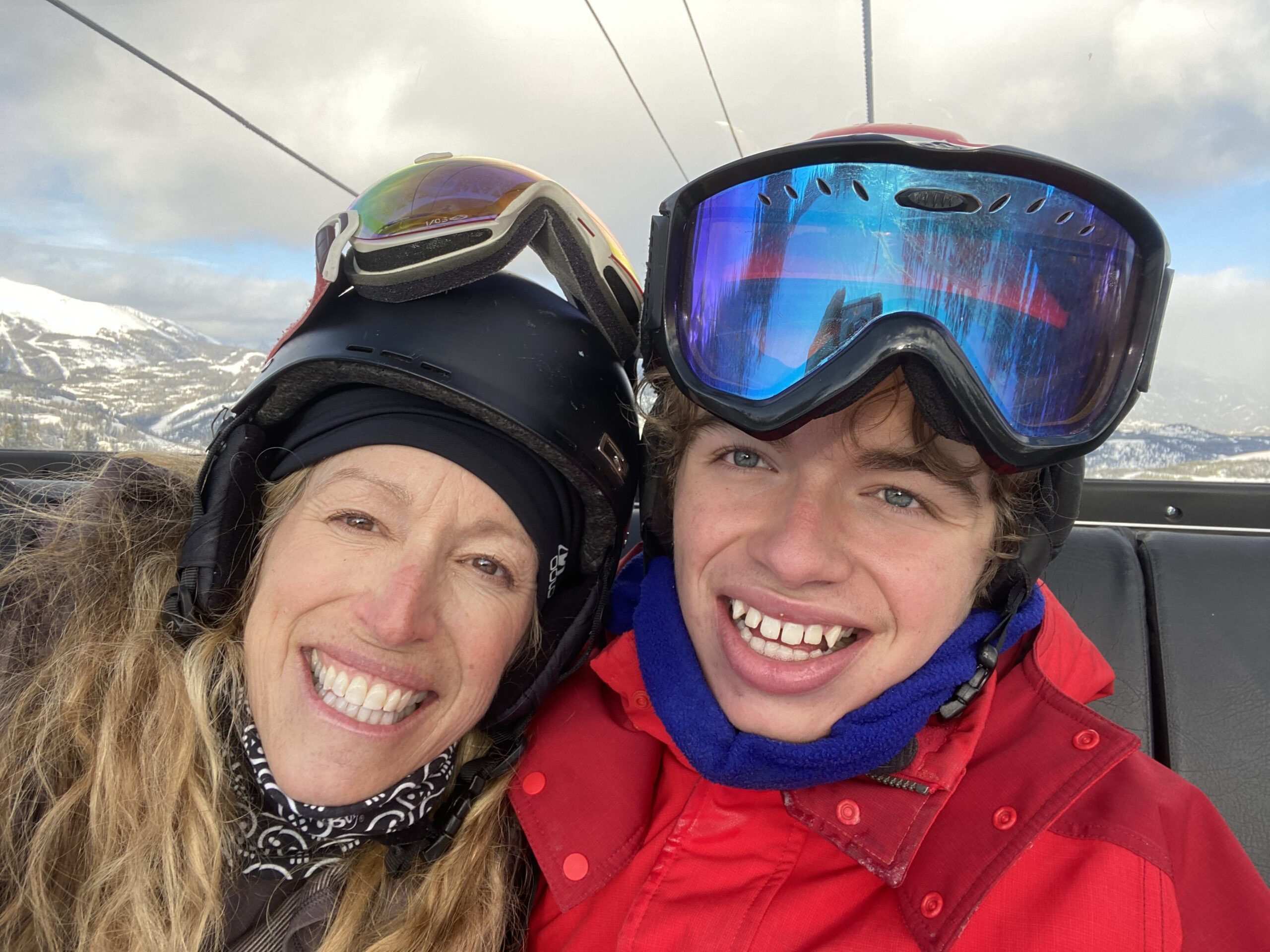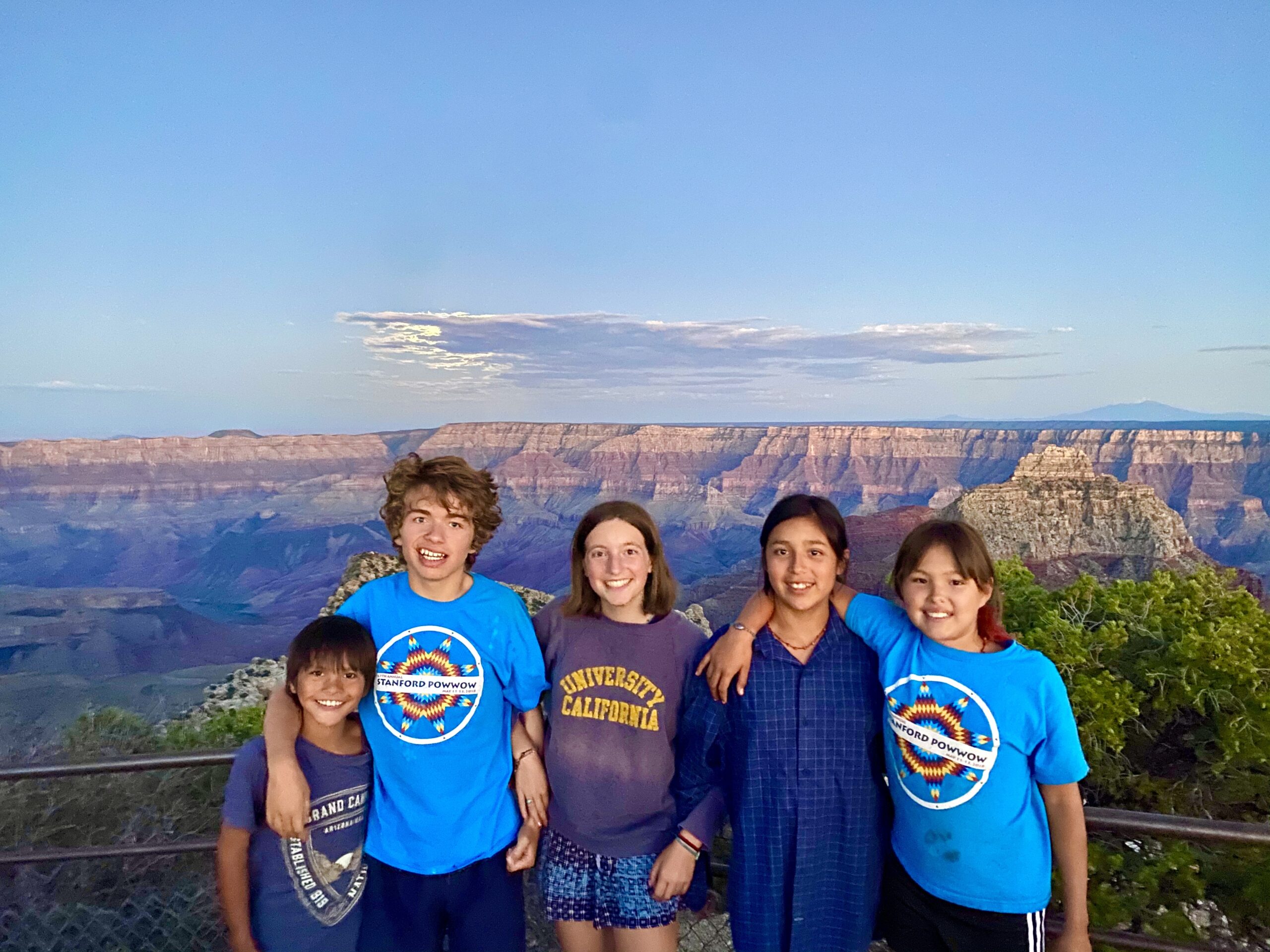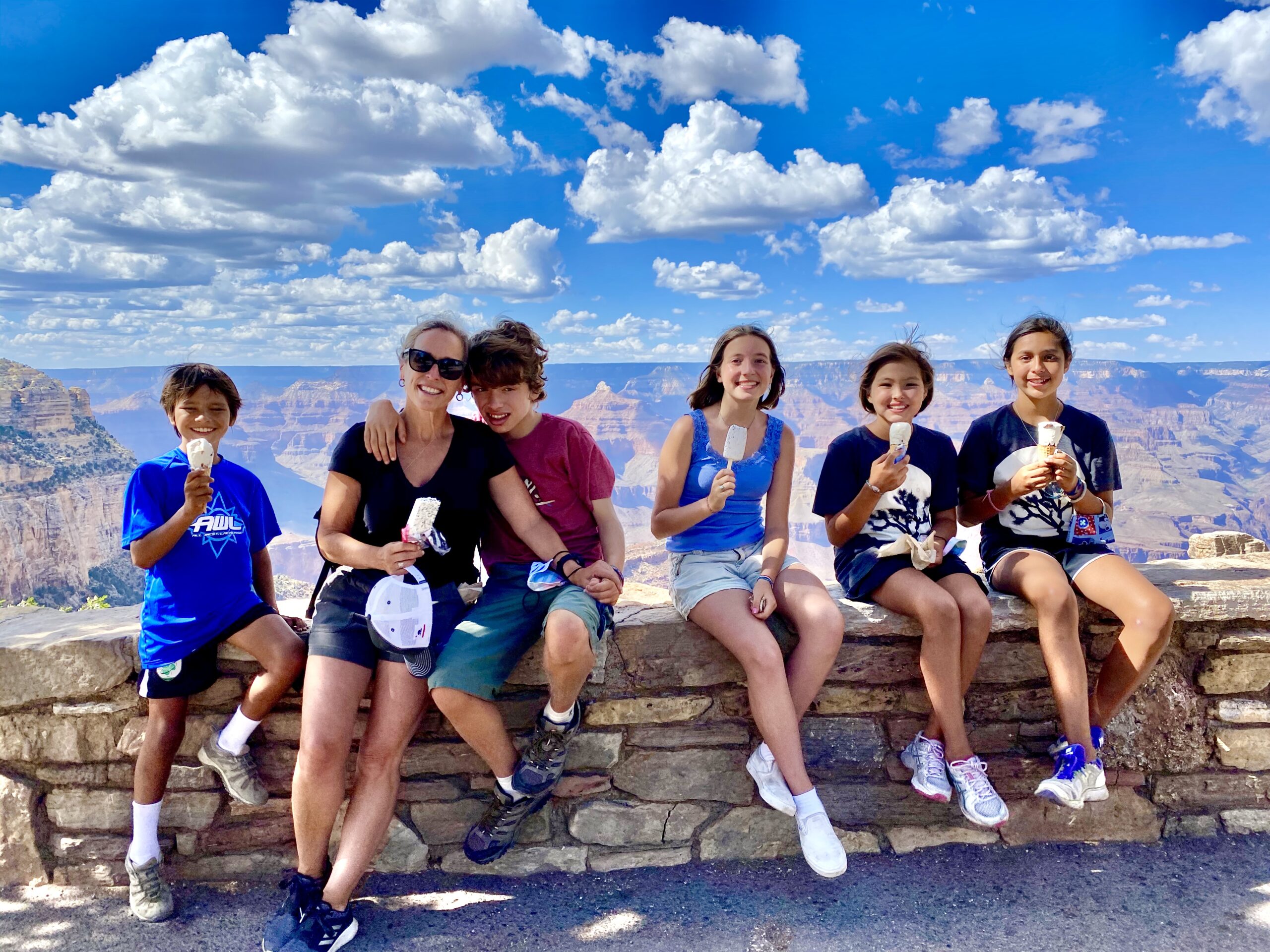Caroline Loewy has devoted herself personally and professionally to help find treatments and cures for those with rare diseases, all due to the rare disease that affects her son, James. Coincidentally, Caroline was already working in the biotech industry, on the finance side, when James was born in 2005.
Soon after James was born, he started having seizures, and has experienced significant developmental delays. His diagnosis didn’t come until 2013 though; the average time it takes to diagnose a rare disease is seven years, and it took eight years for James. He was tested for hundreds of conditions, both non-rare and rare. Caroline and her husband, Gregg Alton, didn’t know what James had, but they knew it was rare.
During James’ diagnostic journey, Caroline and Gregg were introduced by mutual friends to Nicole Boice, the Global Genes founder, in 2008, when Global Genes was still in the planning stages. Caroline and her husband both worked on the business side of the biotech industry, so their involvement in the new organization seemed like a good fit, especially considering their experience with James’ undiagnosed, rare condition.
“Particularly at that point, it was great to belong to a group like Global Genes. Even though we didn’t know specifically what disease he had, after all of the testing, we knew it was a rare disease, and being a part of that community was comforting and offered an opportunity to do something constructive,” said Caroline.
James was referred to the NIH Undiagnosed Diseases Network, though after that battery of tests, they still didn’t find any answers. Through Global Genes, they were later referred to the Translational Genomics Research Institute (TGen), which has a Center for Rare Childhood Disorders, and they diagnosed James with a rare de novo disease, KCNQ2 developmental and epileptic encephalopathy (KCNQ2-DEE), when he was almost nine years old. The mutation in the KCNQ2 gene results in a malfunction in the potassium channels in the brain and throughout the body, which in turn leads to seizures, developmental delays, and other complications.
Before gene sequencing was available, KCNQ2-DEE had not been identified as a disease. While KCNQ2-DEE is in many ways similar to the better-known sodium channel disorder, Dravet syndrome, Dravet presents with more homogenous symptoms, so it could be diagnosed more easily prior to the advent of gene sequencing. Also, because KCNQ2-DEE is usually a de novo disorder, meaning it is not hereditary, it has been harder to track and identify its genetic cause.
KCNQ2-DEE is typically less severe than Dravet on the seizure side, but more severe on the cognitive and other physical complications. Known diagnoses number over 1,000, but for those born prior to the availability of gene sequencing, most have gone undiagnosed, making it harder to identify many of the people who have the condition. For example, there is a significant population of patients that are diagnosed with KCNQ2-DEE who are very young, mostly under the age of 5, and very few that are in their teens or 20’s or beyond. Many of this older group have been misdiagnosed with diseases like cerebral palsy or severe autism, or left undiagnosed. Ones that have been misdiagnosed at least often have some needs addressed with services like physical therapy, occupational therapy, at home care, and access to special education at schools, but the treatments that are not targeted to their unique condition are not very effective or encompassing.
While there were no treatments available for James’ condition, Caroline had some comfort in knowing the cause of his condition and that there were no hereditary factors that could affect other family members. James has one biological sister, and Caroline and Gregg later adopted three more children. James takes a medication to control his seizures, and also undergoes regular therapies to help address other symptoms.
There is currently a clinical trial being conducted for those diagnosed with KCNQ2-DEE, so Caroline is hopeful for James’ future and those with KCNQ2-DEE coming after him. While there are no certainties about what James may encounter with his rare disease, Caroline knows that James is living his best life.
James’ family focuses on what he is able to do and carrying on with activities together as a family to the greatest extent possible. They are fortunate to be able to travel with James and their other children, including many adventures that one wouldn’t think possible for a 17-year-old with the cognitive ability of a person under 12 months. James even traveled to Thailand, where he rode an elephant with Caroline’s help. During the pandemic, when activities cities like San Francisco were limited, the family was able to spend a lot of time outdoors. With school and work online, James and his family spent several months in Montana, where James was able to ski, which he loves, with the adaptive skiing program at Eaglemount in Big Sky. They also did a summer road trip visiting 16 National Parks, with half the family sleeping in their camper van, and the rest staying in a tent throughout the 7-week trip.
The family took their first trip without James recently. An adventure to the Galapagos Islands would be too difficult with James’ special needs. He was well taken care of at home, but it was a hard reality to face that they would occasionally have to do things as a family that James may not be able to be involved in.
Caroline shared that the most profound effect that she has experienced during her odyssey in the rare community was meeting other families going through similar situations, and bringing a personal understanding to the business of the biotech industry where she had long worked. Starting the KCNQ2 Cure Alliance foundation with other parents, and advancing research on the disease to a point where there are treatments being developed specifically targeting KCNQ2-DEE has been particularly gratifying.
“From a patient advocacy perspective, Global Genes is instrumental in showing foundations best practices, such as creating infrastructure for the foundation, how to gather patients together, holding summits with experts, getting information about starting registries, and seeing others that have successfully gone before, like John Crowley, who has formed companies and developed treatments benefitting patients,” shared Caroline.
Oddly enough, Caroline met John Crowley [also a Global Genes board member] even before James was born. She was working in the investment banking industry for Morgan Stanley, and worked with John’s company, Novazyme, when he was looking for funding, and later sold the company to Genzyme.
“I was on the finance industry side,” shared Caroline. “Then come full circle, and I meet John again as a fellow rare parent.”
Because of Caroline’s early involvement with Global Genes and the introduction to Nicole Boice in 2008, Caroline is one of the founding board members for Global Genes. In addition, her work in the biotech industry now consists of serving on the boards of directors of companies, including PhaseBio Pharmaceutics, CymaBay Therapeutics, Aptose Biosciences. She is also the co-founder of KCNQ2 Cure Alliance, a non-profit founded to advance research for KCNQ-DEE, and serves on its board.
From her career in finance, to being a rare mom and a force to be reckoned with in the biotech and non-profit rare world, let her experiences remind everyone, Caroline Loewy will find a way.
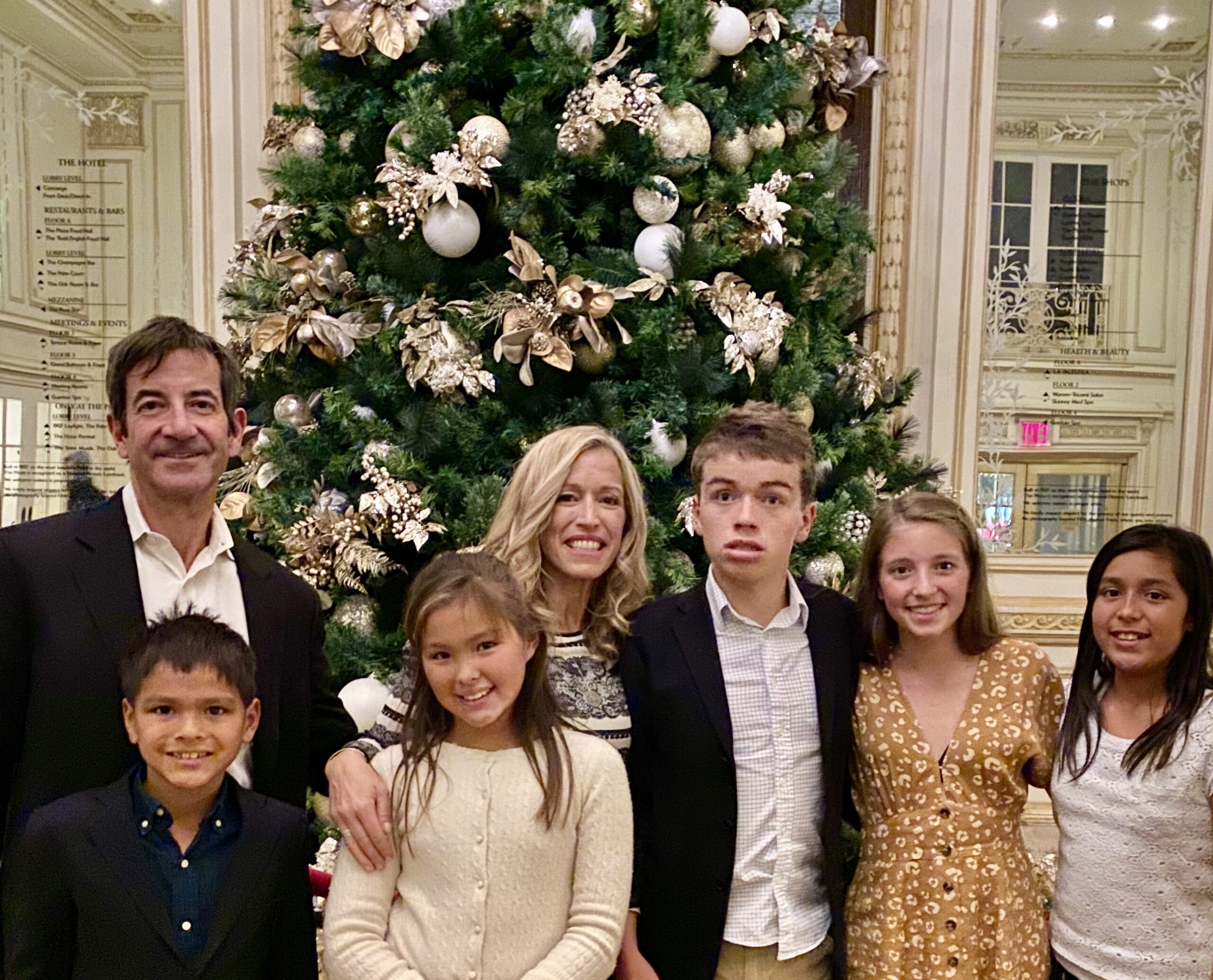
The Alton Family in New York City in 2019

Stay Connected
Sign up for updates straight to your inbox.

